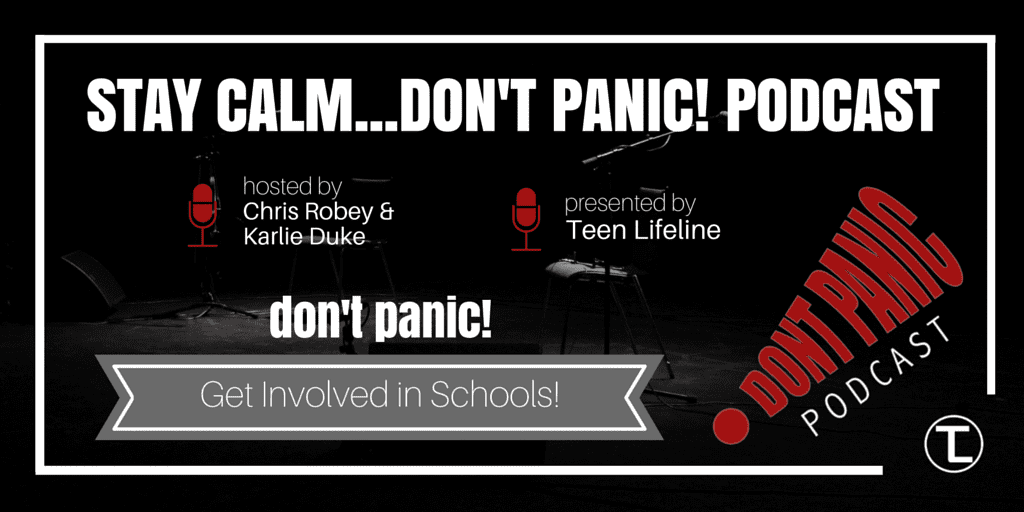
Don’t Panic – Get Involved in Schools!
Podcast: Play in new window | Download
School is a major part of every teenager’s life. It is also the best way to serve and reach students on their turf. In this episode, Chris and Karlie discuss the importance of adult involvement in schools and how you can be a resource to your community. Don’t panic about the current state of our teenagers and their schools, let’s get involved and start making a difference by reaching out to public schools!
In this episode, you’ll find out…
- Why it is important to volunteer and get involved in your local school.
- How school involvement benefits both the school staff and the students.
- Real-life examples of ways to get involved in schools.
- 3 different stories of how people in our community our reaching out to schools.
- A 3-step process to volunteering on a school campus.
Ask yourself…
- Is there a school close by that I would like to get involved with?
- What skills or services could I offer to my local school?
Go ask a school campus…
- Do you have a volunteer coordinator that I can get in touch with?
- How can I help?
- What can I do to support your staff and students?
Resources
- School Involvement Organizations:
- Teen Life (formerly known as Teen Lifeline)
- Odyssey Ink is no longer available
- Communities in Schools
- Big Brothers Big Sisters
- Fellowship of Christian Athletes
- FWISD Flyer no longer available
- Music: Under the Chandeliers

Chris Robey
Former CEO

Karlie Duke
Communications Director
Have a question?
Karlie Duke | Director of Communications
Karlie has always had a heart for teenagers. Through her role at Teen Life, she loves to showcase the amazing stories coming out of Support Groups, but she is especially passionate about helping adults and teenagers find connection. Karlie has a BS in Communications with a minor in Family Studies from Abilene Christian University.
Chris Robey | Former CEO
Chris has spent most of his career empowering teenagers from all backgrounds. As the former leader of Teen Life, he is passionate about helping students make good choices while also giving adults the tools they need to communicate more effectively with teens. Chris is a graduate of Midwestern State University and holds a Master’s Degree in Family Life Education from Lubbock Christian University.








